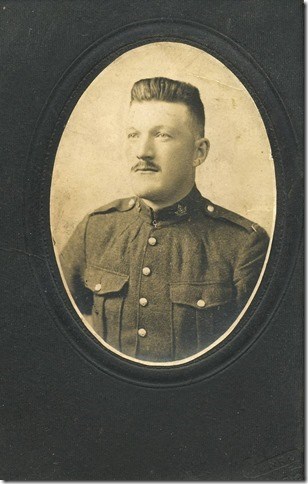By Dieter Buse
In June 1919, eight Canadian soldiers who had fought in the First World War and waited for transport home were charged with manslaughter and rioting in Epsom, England.
A policeman had been killed when about 400 soldiers tried to storm the police station to liberate two of their chums. The two men were being held for a minor pub brawl. The main event became known as the Epsom Riot.
In time for the 100th anniversary of the riot, Ric deMeulles has created a historical novel about his grandfather's part in the riot and many more intriguing events in his family's long journey to Cape Breton and eventually through two world wars. He has published two other novels relating to the harsher aspects of northern living.
To review the case without giving away deMeulles’ story, remember that the war had ended in November 1918. Some of the soldiers had been away from Canada for two or three years.
Since the service files of First World War soldiers are now available, we can learn a lot about these men. In the case of Ric’s grandfather, Allan McMaster (Regimental Number 716144 with which his file can be accessed at Library and Archive Canada website “Soldiers of the First World War”), the service and medical file is fascinating.
He enlisted March 4, 1916, and after training, arrived in France late that year.
The medical file reveals that this soldier had epilepsy and went into rages unaware of his actions. He also contacted venereal disease and spent much time in French and English hospitals missing most of the trench warfare during 1917.
Such information is just a hint at what may have played a part in this big blacksmith (6 feet tall; 39 inch chest) wielding an iron bar or picket fence during the riot.
After the war McMaster lived in Timmins and later went to Winnipeg (1924) where he allegedly confessed to delivering the killing blow. I leave it to Ric’s book to flush out the details and decisions on how much fact and fiction he wants to mix.
Instead I point to an important mystery: it seems some of the soldiers’ service files are missing. Did some of the men give false names and their officers turn a forgiving eye?
Did the files get removed for some other purpose? In the files that exist, some of the Canadian accused said they were merely going back to barracks and got caught in the melee, some admitted to being in the group seeking to liberate their comrades.
But as a group they had a high rate of treatment for sexually transmitted disease and for misconduct. So were some just the typical bad apples with too much time on their hands?
Eventually some of the men received prison sentences, but few served their full time in jail. At least one had to serve a year and another was demoted for misconduct. McMaster, for example, was in military prison from July to September 1919, then held in civil jail. But by Jan. 3, 1920 he was in Halifax and discharged from the military with only “demobilization” given as reason.
Did the British government act behind the scenes to reduce the sentences? A visit by the crown prince to Canada was pending in September 1919 and the government probably wanted to smooth over relations with Canada.
After all, Canadian soldiers had done yeoman service for the Allies at Ypres, at Vimy, at Passchendaele and in the last 100 days of war.
Surely the frustration and consequences of waiting for months, paying extortion prices for tobacco and competing with the locals over women, was understood by the Canadian and British authorities.
Ric deMuelles is author of two murder mysteries; his book on the McMaster family is being published in September 2018. Look for title Quinn and his launch (with beer)
Dieter K. Buse is professor emeritus of history at Laurentian University. His co-authored book, “Untold: A Military History of Northeastern Ontario vol. 1: 1662-World War 1,” published by Latitude 46, appears this fall.
